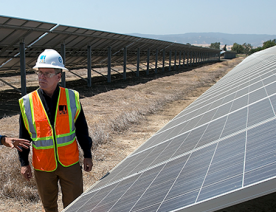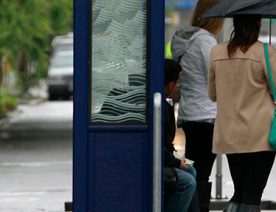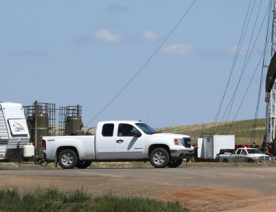
Seventy-one percent of Americans say climate change is a reality, and most think human activity is primarily responsible, while only 9 percent say it is not. Nineteen percent are unsure. Among those who say climate change is happening, 60 percent think it is primarily caused by human activities.
Nearly half of Americans say the science on climate change is more convincing than five years ago, with extreme weather driving their views. The survey was conducted while wildfires were burning out of control in California, though there were no significant regional differences in responses.
Americans who accept that climate change is happening want the government to address it. Forty-four percent support and 29 percent oppose a policy to reduce greenhouse gas emissions by taxing the use of carbon-based fuels based on how much they contribute to climate change, irrespective of how the funds would be used. Twenty-five percent say they neither support nor oppose a carbon tax.
Two-thirds support a carbon tax if the proceeds were used for environmental restoration and more than half support it if the funds were used towards research and development for renewable energy programs and public transportation.
To combat climate change, 57 percent of Americans are willing to pay a $1 monthly fee; 23 percent are willing to pay a monthly fee of $40. Party identification and acceptance of climate change are the main determining factors of whether or not people are willing to pay, with Democrats being consistently more inclined to pay a fee.
Last summer, the Trump administration proposed a freeze on fuel efficiency standards for cars, rolling back an Obama administration rule that requires automakers to nearly double the fuel economy of passenger vehicles to an average of about 54 miles per gallon by 2025.
Half of the survey respondents were told the proposed freeze could lead to reduced prices for vehicles. Of those, 49 percent support the freeze. The other half were told the proposed freeze could mean that greenhouse gas emissions would not be reduced. Only 21 percent support the freeze when they are given that argument.
The nationwide poll was conducted November 14-19, 2018 using the AmeriSpeak® Panel, the probability-based panel of NORC at the University of Chicago. Online and telephone interviews using landlines and cell phones were conducted with 1,202 adults. The margin of sampling error is plus or minus 3.9 percentage points.






